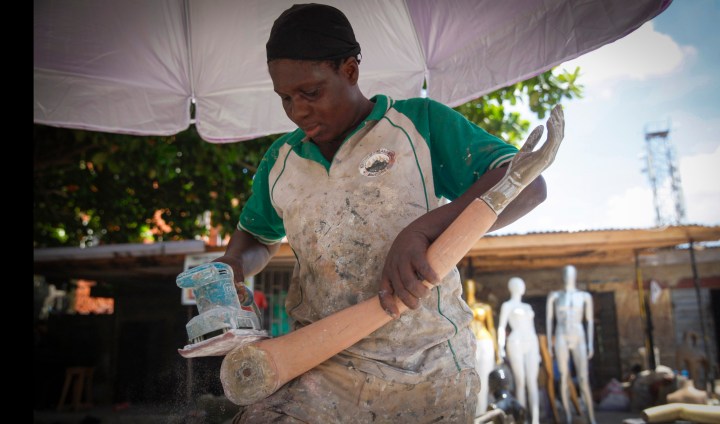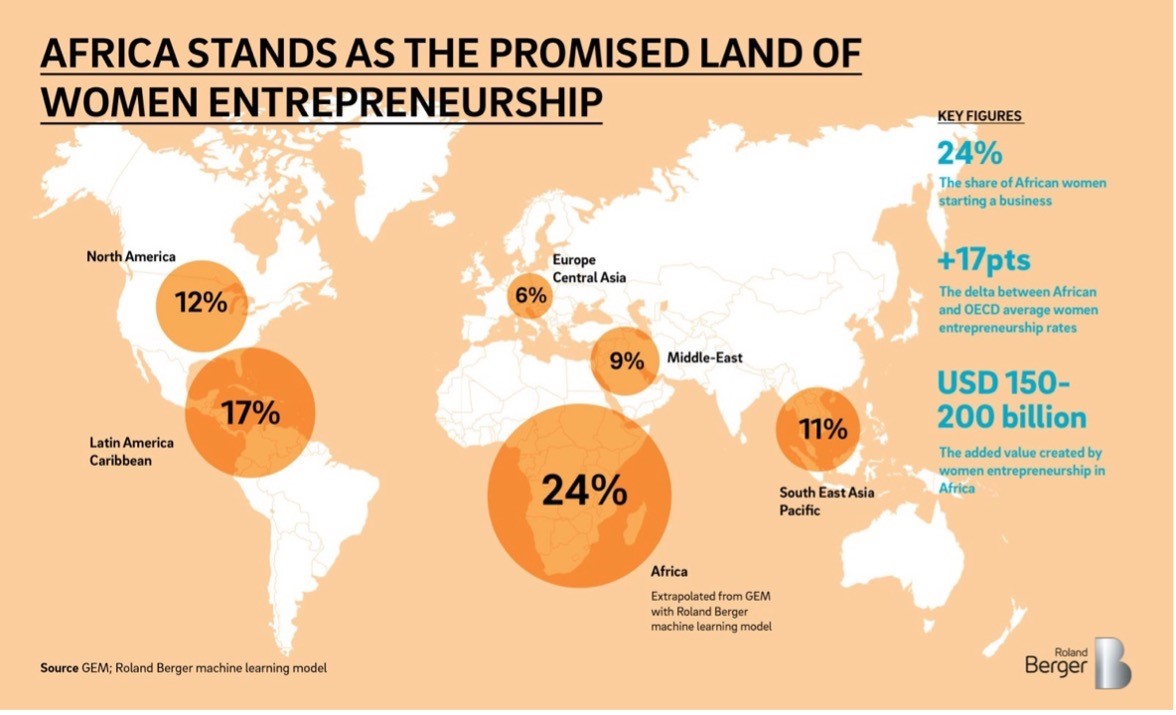EMPOWERMENT OP-ED
How inclusive business environments will boost Africa’s women entrepreneurs

Deep-rooted cultural norms and societal expectations often restrict women’s participation in business activities. Traditional gender roles, family responsibilities and social norms may limit women’s mobility, decision-making autonomy and access to business networks and opportunities.
In recent years, women in Africa have increasingly been recognised as critical drivers of inclusive economic growth and development through their participation in entrepreneurship and business ventures.
According to the World Economic Forum, about 24% of women in sub-Saharan Africa – cited as the highest proportion in the world – are involved in entrepreneurial activities.

A 2018 report by the World Bank’s Jobs Group shows that some women are entrepreneurs while others start and manage enterprises in various sectors, mostly in agriculture, retail, technology and services that drive economic activity and provide decent jobs.
Limitations and challenges
Despite the important role they play in development, women-owned businesses in Africa tend to have weaker economic performance, are smaller, use less external finance, are less profitable, grow more slowly and have higher closure rates.
Evidence shows that female-owned enterprises post monthly profits that are on average 38% lower than those of male-owned enterprises.
South Africa is one of only 12 economies where women’s entrepreneurial activity rates increased, with 11.1% of working-age women engaged in early-stage entrepreneurial activities (up from 10.2% in 2020), compared with 11.7% for men (up from 11.4% in 2020).
This is largely due to various developmental challenges that women in business in Africa are confronted with. These include limited access to productive resources such as finance and land; cultural and social barriers; inadequate infrastructure; lack of access to markets and networks, and legal and regulatory constraints.
Access to finance remains a significant barrier for women entrepreneurs in Africa. They often struggle to obtain credit, loans or investment capital due to collateral requirements, discriminatory lending practices and limited financial literacy.
Affordable financing has since become even more limited following the pandemic, which caused great economic distress in sub-Saharan Africa, with $115-billion in output losses and over 3% contraction in GDP.
Women entrepreneurs in Africa generally lack the necessary skills, knowledge and information required to build, grow and sustain a business.
Limited access to entrepreneurship training, technical skills and business management knowledge hampers women’s ability to innovate, compete and scale their enterprises.
Female entrepreneurs in many parts of Africa are also confronted with cultural and social barriers.
Deep-rooted cultural norms and societal expectations often restrict women’s participation in business activities.
Traditional gender roles, family responsibilities and social norms may limit women’s mobility, decision-making autonomy and access to business networks and opportunities.
The societal norm that men are breadwinners and women are household caretakers is prevalent across cultures and races in Africa, and hinders women’s recognition by society.
Unlocking opportunities for women entrepreneurs
On International Women’s Day (8 March), we must re-emphasise that women empowerment in business is essential for unlocking Africa’s economic potential and achieving sustainable development.
By enacting and enforcing laws and regulations that promote gender equality, protect women’s property rights and eliminate discriminatory practices in the business environment, women entrepreneurs can maximise their potential by leveraging existing opportunities.
Simplifying business registration processes, ensuring equal access to land and property ownership and enforcing labour laws that protect women’s rights are essential steps to creating an enabling environment for women in business.
Leveraging technology and innovation can unlock opportunities for women entrepreneurs in Africa, enabling them to overcome traditional barriers and reach new customers.
Initiatives such as digital platforms, e-commerce, mobile banking and fintech solutions can enhance women’s access to finance, markets and information.
To leverage these opportunities, African prioritisation in investments in education, vocational training and skills development programmes that empower women with the knowledge and capabilities needed to succeed in the modern business world will be critical for governments to pursue.
The African Continental Free Trade Area (AfCFTA) holds immense potential for empowering women entrepreneurs and driving economic growth across the continent.
By reducing trade barriers and facilitating intra-African trade, the AfCFTA creates opportunities for women to participate more actively in the regional economy and move up the value chain in various sectors.
The AfCFTA aims to reduce the costs of trade by eliminating tariffs, streamlining customs procedures, harmonising trade regulations among African countries and making it easier and more affordable for women entrepreneurs to engage in cross-border trade and access new markets for their products and services.
By leveraging the expanded market access and reduced trade barriers, women can engage in higher-value activities such as marketing, processing, distribution and industrial processes.
This shift towards value-added activities enables women to increase their competitiveness, productivity and profitability in the regional market.
The AfCFTA provides a platform for promoting science, technology, engineering and mathematics (STEM) education and industrial development among women entrepreneurs.
By facilitating technology transfer, knowledge sharing and collaboration across borders, the AfCFTA enables women to harness the power of innovation and technology in driving industrialisation and economic growth.
Women can play a crucial role in STEM-related industries, including manufacturing, engineering and digital technology, contributing to job creation, skills development and innovation on the continent.
Overall, strengthening women in business in Africa is not only a matter of social justice, but also an economic imperative.
By addressing the challenges faced by women entrepreneurs and implementing policy solutions to promote gender equality, financial inclusion and entrepreneurship development, African governments can create a more inclusive and dynamic business environment that harnesses the talents and contributions of women towards driving economic growth and prosperity on the continent.
The empowerment of women entrepreneurs through the AfCFTA also aligns with the poverty reduction goals outlined in the African Union’s Agenda 2063 and the United Nations’ Agenda 2030 for Sustainable Development. DM
Dr Mamello Amelia Nchake is a senior lecturer in the Department of Economics at Stellenbosch University.

















 Become an Insider
Become an Insider
Comments - Please login in order to comment.